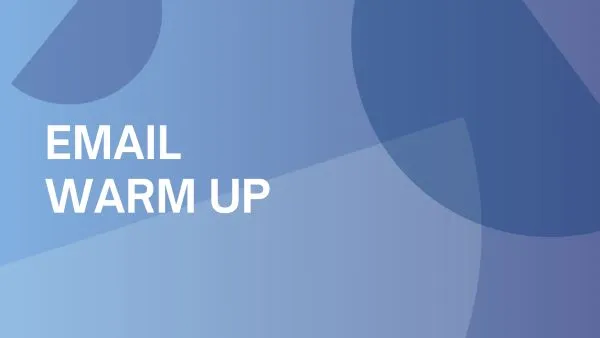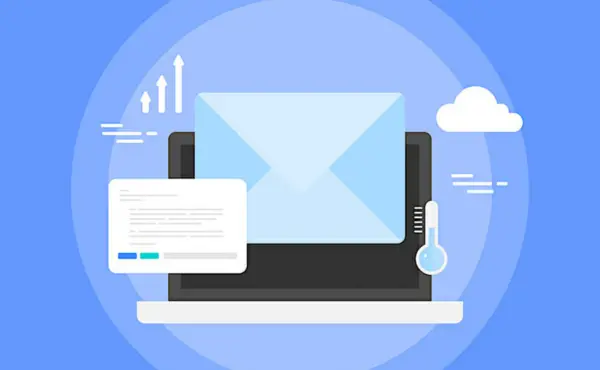Yes, Boost Inbox is designed to cater to businesses of all sizes and industries.

When it comes to email outreach, the debate of Warm-Up vs Cold Send is one every marketer faces. Should you start emailing prospects immediately with a cold send? Or should you invest time in email warm-up first?
The truth is simple: both methods have their place. However, if you want better email deliverability, stronger sender reputation, and consistent inbox placement, warm-up almost always wins. And with tools like BoostInbox.com, the warm-up process is faster, smarter, and fully automated.
In this blog, we’ll break down everything you need to know about Warm-Up vs Cold Send, the pros and cons of each, and why BoostInbox is the right choice for building outreach that lasts.
What Is Email Warm-Up?
Email warm-up is the process of slowly increasing your sending volume while building a trustworthy sender reputation with ISPs like Gmail and Outlook.

Instead of jumping into bulk outreach, warm-up ensures that your emails land in the inbox, not spam.
During warm-up:
• You send small batches of emails daily.
• Tools like BoostInbox.com simulate real engagement (opens, replies, clicks).
• ISPs recognize your account as legitimate, not spammy.
The goal of email warm-up is to boost inbox placement so when you do launch outreach, your emails are seen and read.
Without warm-up, cold send outreach can backfire, leaving your domain flagged as suspicious.
What Is Cold Send?
A cold send is when you send emails directly to prospects without any prior warm-up. Cold send outreach is common for businesses that want immediate lead generation.
The appeal is obvious: you can send hundreds of emails on day one. But the risk is higher:
• Emails often land in spam.
• Engagement rates plummet.
• Sender reputation suffers.
Cold send outreach is like walking into a room of strangers and shouting your pitch-it might grab attention, but it’s not the best way to build trust.
Warm-Up vs Cold Send: Key Differences
The differences between Warm-Up vs Cold Send are critical for understanding which is best for your outreach strategy.
|
Particulars |
Cold Send Outreach |
Email Warm-Up (BoostInbox) |
|
Purpose |
Immediate outreach to prospects |
Build reputation for inbox success |
|
Deliverability Risk |
High risk of spam |
Low risk, improves inbox placement |
|
Sender Reputation |
Damaged quickly |
Strengthened steadily |
|
Time Required |
Instant start, poor results |
Gradual process, long-term benefits |
|
Outcome |
Low opens, low replies |
Higher open rates, better conversions |
|
Tools to Use |
Any sending tool |
Warm-up tool like BoostInbox.com |
It’s clear that while cold send may look faster, email warm-up builds the foundation for sustainable outreach.
Advantages & Limitations of Cold Sending
Advantages of Cold Send Outreach
• Quick to start with no prep.
• Useful for one-time campaigns.
• Can reach large audiences instantly.
Limitations of Cold Send Outreach
• Email deliverability is very low.
• High risk of landing in spam.
• Damages sender reputation permanently.
• Not scalable for long-term growth.
Cold send is like a shortcut that ends in a dead end. Without warm-up, you risk wasting valuable leads.
Advantages & Limitations of Email Warm-Up
Advantages of Email Warm-Up with BoostInbox.com
• Builds strong sender reputation automatically.
• Higher inbox placement = more visibility.
• Long-term outreach sustainability.
• Protects your domain from blacklisting.
• Boosts reply rates and conversions.
Limitations of Manual Warm-Up
• Takes 2–4 weeks if done manually.
• Requires daily consistency.
• Without automation, it’s tedious.
That’s why businesses rely on BoostInbox.com. It automates email warm-up, simulates authentic engagement, and makes sure your account is always inbox-ready.
Warm-Up vs Cold Send Examples
Cold Send Example:
A company launches a new email domain and immediately sends 500 cold emails. Most land in spam, open rates are below 5%, and the domain reputation drops.
Warm-Up Example with BoostInbox:
Another company warms up its domain using BoostInbox.com. It starts with 20 emails a day, gradually scaling up. Engagement looks authentic thanks to automation. After 3 weeks, they send cold emails-80% land in inbox, and reply rates increase by 3X.
This shows why in the debate of Warm-Up vs Cold Send, warm-up is always the safer and smarter choice.
Warm-Up vs Cold Send: Which Is Best for Outreach?
If you’re serious about lead generation, email warm-up is the winner. Cold send might look fast, but the risk of spam and low engagement can ruin your outreach.
Warm-up is about playing the long game:
• Better deliverability.
• Stronger sender reputation.
• More consistent results.
The clear solution? Start with BoostInbox.com. It takes the hassle out of warm-up, so you can focus on outreach that converts.
Tips for Outreach Success (Warm-Up + Cold Send)
To get the best results from your outreach campaigns:
1. Always warm up new accounts before cold sending.
2. Use BoostInbox.com to automate the warm-up process.
3. Personalize subject lines and avoid spam words.
4. Gradually increase sending volume.
5. Track your email deliverability and make adjustments.
6. Protect your sender reputation by avoiding bounces.
7. Mix warm-up with well-crafted cold send outreach for maximum ROI.
Conclusion
In the debate of Warm-Up vs Cold Send, the answer is clear:
• Cold send is fast but risky.
• Warm-up is slower but guarantees inbox placement and higher engagement.
If you want consistent outreach success, you can’t afford to skip warm-up. Tools like BoostInbox.com make it easy by automating the process, boosting your inbox placement, and protecting your sender reputation.
FAQs
Q1: How long does email warm-up take?
Usually 2–4 weeks, but with BoostInbox.com, the process is automated and faster.
Q2: Can I skip warm-up if I send only a few emails?
For less than 20/day, maybe-but scaling without warm-up is risky.
Q3: What happens if I only cold send?
You risk spam folders, blacklisting, and wasted opportunities.
Q4: Why BoostInbox.com over manual warm-up?
Because it automates engagement, saves time, and guarantees results.
Q5: What’s the best outreach strategy?
Combine email warm-up with BoostInbox.com and targeted cold send campaigns for maximum deliverability and conversions.
What to read next
Absolutely! Boost Inbox is compatible with most major email service providers.
The warmup process duration may vary depending on your email volume, but it typically ranges from a few days to a couple of weeks.
Yes, Boost Inbox offers dedicated customer support to assist you throughout the warmup process.
While it's possible, it's best to start the warmup process from the beginning with Boost Inbox for optimal results.

.webp)